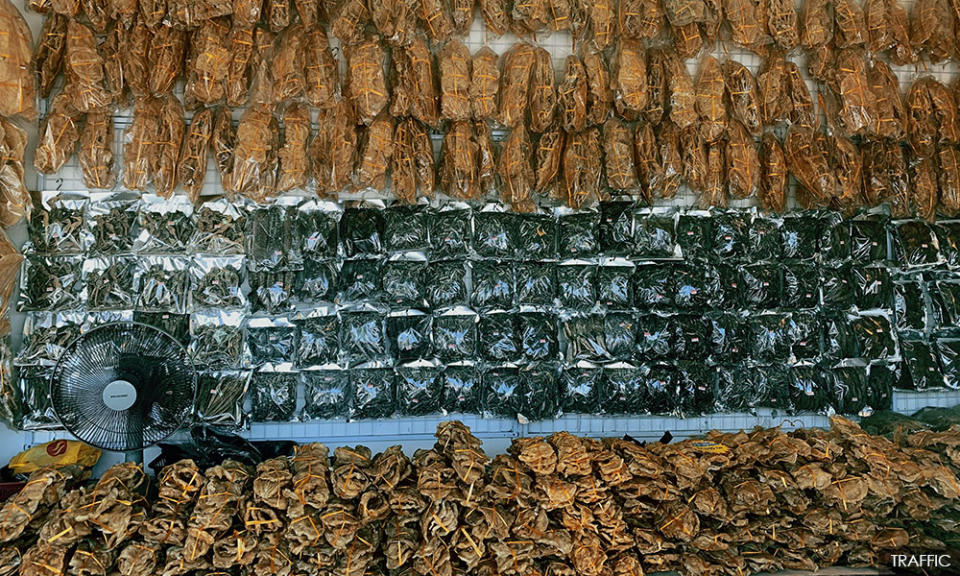Endangered sea cucumber, fish maw found sold online in M’sia, S’pore

A recent report has found endangered species of sea cucumber being advertised for sale on websites and e-commerce platforms in Malaysia and Singapore.
Advertisements for fish maw of endangered species were also found.
In a rapid assessment of the online trade of these seafood types, UK-based sustainable wildlife trade NGO Traffic surveyed 34 websites in Malaysia and Singapore over 11 days in June-July 2020.
These sites included major e-commerce platforms like Shopee, Lazada and Carousell along with websites of businesses that specialise in seafood.

Researchers Elliot James Ong and Chin Suk Teng found 21 posts advertising sea cucumber species that are listed as “threatened” by the Convention of International Trade in Endangered Species of Wild Flora and Fauna (Cites).
The three species on the Cites list were: Holothuria fuscogilva, Holothuria nobilis and Holothuria whitmaei.
“These three species are also protected under Malaysia’s International Trade in Endangered Species Act 2008 and Singapore’s Endangered Species (Import and Export) Act 2006,” read the report.

Also recorded were six species of sea cucumber designated as “endangered” on the International Union for Conservation of Nature (IUCN) Red List. Five other species advertised were identified by IUCN as “vulnerable”.
As for fish maw, the Traffic survey found advertisements for IUCN “critically endangered” Golden dragon fish (Larimichthyes crocea) and Sturgeon (Acipemseridae).

Sturgeon is also on the Cites list plus protected under Malaysian and Singaporean law.
It also found “endangered” Patin fish (Pangasionodon hypophthalamus) fish maw and “vulnerable” Atlantic goliath grouper fish (Epinephelus itajara) fish maw advertised for sale.
Fish maw refers to the dried swim bladders of large fish.
More scrutiny needed
According to the Traffic report, advertisements for sea cucumber expanded beyond seafood to skincare and purported health products as well.
“(These) brands claimed to use sea cucumber extracts from Stichopus hermanni (IUCN Vulnerable) although this could possibly be a mixture of Stichopus hermanni and Stichopus horrens.
“Although the exact amount of sea cucumber present in these health and skincare products were unclear, overharvesting of Stichopus hermanni has been reported to cause population declines in Malaysia,” read the report.
With the availability of endangered sea cucumber and fish maw species online, the report urged Malaysian and Singaporean authorities to pay closer attention to the trade.

“(This) warrants the need for close monitoring in this trade to ensure strict compliance to national and Cites regulations.
“This also translates to the need for a robust regulatory system for these commodities,” it proposed.
Traffic further suggested that authorities conduct DNA analysis to identify whether endangered species were being sold.
“DNA analysis from sample products offered online and in physical marketplaces would allow for better identification of the species in trade.
“And help determine what proportion of overall trade constitutes species that are threatened, endangered or prohibited from trade,” it said.

